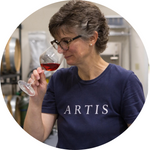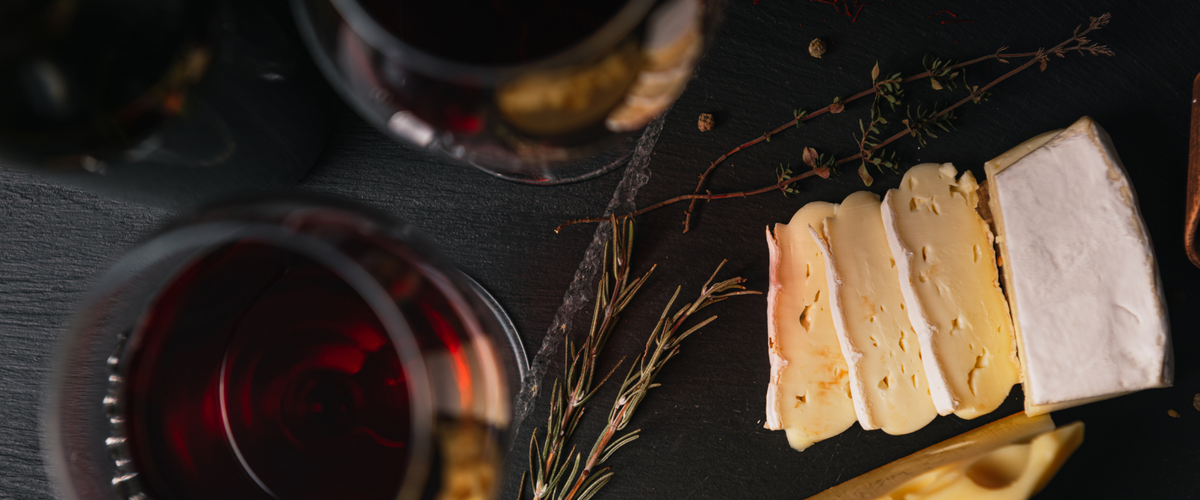Posted July 2022
 Jacquelyn Groeper (CGS’89, CAS’92, MET’07) is an instructor in BU’s Wine Studies Program and winemaker/co-owner at Artis Winery. She was recently honored with a silver medal in the 2020 International Women’s Wine Competition held in Sonoma, California. After completing the Boston University Wine Studies Program in 2007, she attained accreditation as a Certified Specialist in Wine (CSW) from the Society of Wine Educators. Jacquelyn furthered her education in enology at the University of California Davis and Washington State’s Viticultural Program. Her travels allow her to explore various wine regions and expand her understanding of different grape varieties, terroirs, and winemaking techniques. We sat down with Jacquelyn in June 2022 to ask her the wine questions we’ve all been wondering—including tips & tricks to choosing affordable bottles.
Jacquelyn Groeper (CGS’89, CAS’92, MET’07) is an instructor in BU’s Wine Studies Program and winemaker/co-owner at Artis Winery. She was recently honored with a silver medal in the 2020 International Women’s Wine Competition held in Sonoma, California. After completing the Boston University Wine Studies Program in 2007, she attained accreditation as a Certified Specialist in Wine (CSW) from the Society of Wine Educators. Jacquelyn furthered her education in enology at the University of California Davis and Washington State’s Viticultural Program. Her travels allow her to explore various wine regions and expand her understanding of different grape varieties, terroirs, and winemaking techniques. We sat down with Jacquelyn in June 2022 to ask her the wine questions we’ve all been wondering—including tips & tricks to choosing affordable bottles.
What resources would you recommend for someone new to the world of wine?
Taking a class like those offered by BU’s Food and Wine Program is a great way to begin. They allow you to taste a variety of wines while learning about regions, grape varieties, pairing, etc. I understand that many alumni may not have access to these or other similar classes, so investigate other resources such as podcasts, websites, books, and even local wine shops that might have tastings or other types of events.
What are your favorite things about working in the wine industry?
The wine industry is diverse. I appreciate meeting farmers, researchers, winemakers, educators, and shop owners that make the wine business so unique. It’s an industry that is constantly changing and evolving
What can you tell us about your experience making wines?
Making quality wine begins in the vineyard. I enjoy walking the vineyards and speaking with growers. Growing season, viticultural practices, soil, and elevation are essential factors in sourcing quality fruit. Choices such as oak or stainless barrels, natural or commercial yeast, aging, and secondary fermentation… It is fascinating to follow the wines through the aging process to see how they change and develop over time. There is an art and a science to winemaking.
What are the most important steps to properly tasting a glass of wine?
The techniques that we teach in the Wine Studies Program are based on assessing the quality of a wine. We first look at color and clarity. These qualities can give you a hint of the age of the wine The next step is assessing the aromatics. I first smell the glass and record aromas, then I swirl the glass and smell again. Swirling allows the compounds in the wine to volatilize. It also may allow “legs” to form which indicates the level of alcohol. We then taste the wine. Here we note taste profiles such as sweetness, sourness, effervescence, “heat”, and astringency. The smell and taste profiles can offer a sense if the wine is faulty and the reason for the fault. Lastly, we note if the wine is complex, balanced, and has a short or long finish. Together, all of these factors allow us to assess the overall quality of a wine.
What are the benefits of decanting?
Decanting can be quite beneficial for flavor, especially for reds. By pouring wine into a decanter, the wine is aerated, the tannins softened, and sediment is separated. Aeration allows the wine to “breath” and releases aromatic compounds.
What would you recommend for someone who doesn’t have the space or budget for a wine fridge?
Ideal storage temps are 50F-60F with 60%-80% relative humidity The basement tends to be the best place. If this is not an option, consider a closet, space under stairs, or a garage.
How do you decide what will pair well with an entree?
Don’t hesitate to ask a server or staff for their recommendation. The key items to consider are not only what the main course is but also the flavoring or sauce. I’ll use two pasta dishes as an example: One with tomato sauce and one with cheese sauce. The wine that pairs well with the rich, acidic tomato sauce is a medium-bodied, tart red such as a Chianti. The cheese sauce will pair well with a white that enhances the creaminess such as an oak-aged Chardonnay.
What advice do you have for a wine enthusiast on a budget?
Price ranges dramatically but does not always indicate quality. A number of factors determine price, such as production costs, though many “cult” wines are expensive because the producer makes small quantities. Try less expensive wines from a highly sought-after brand. In general, the $15 price point is the most competitive and you can find some good everyday wines at this level. If you decide to spend a little more, in the $18-30 range, you can find some excellent options.
For more information on MET’s Food and Wine programs, visit their website here.
